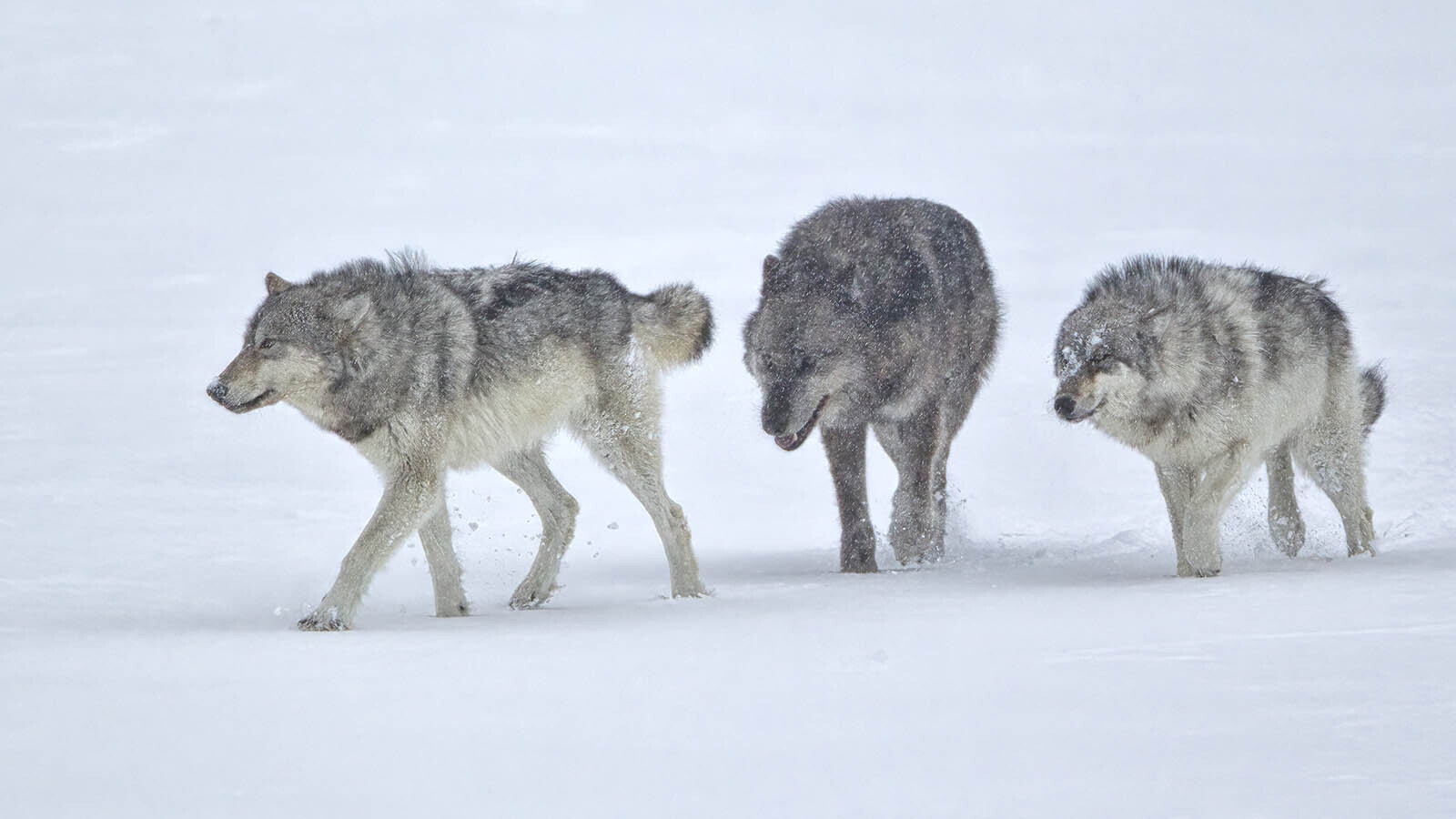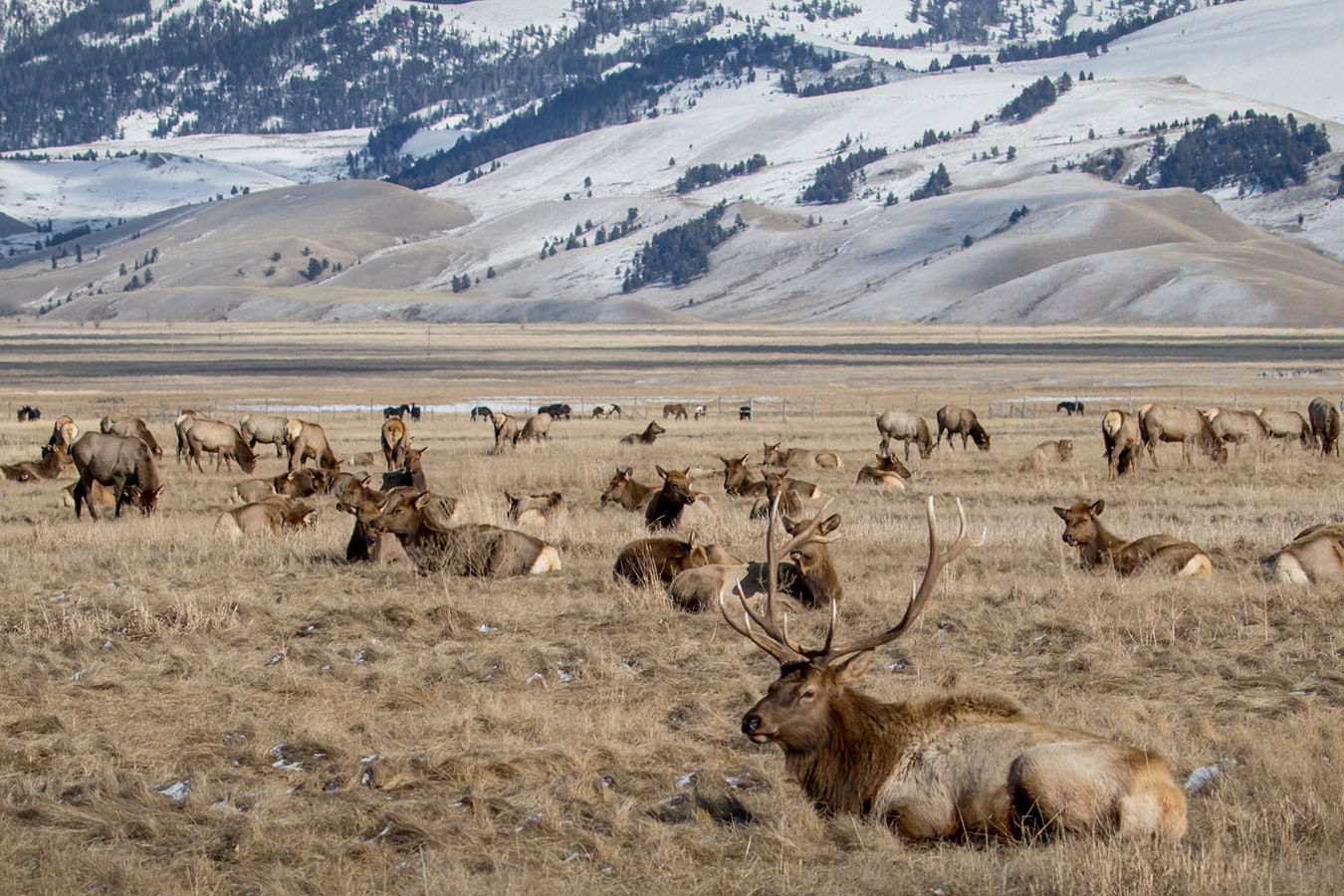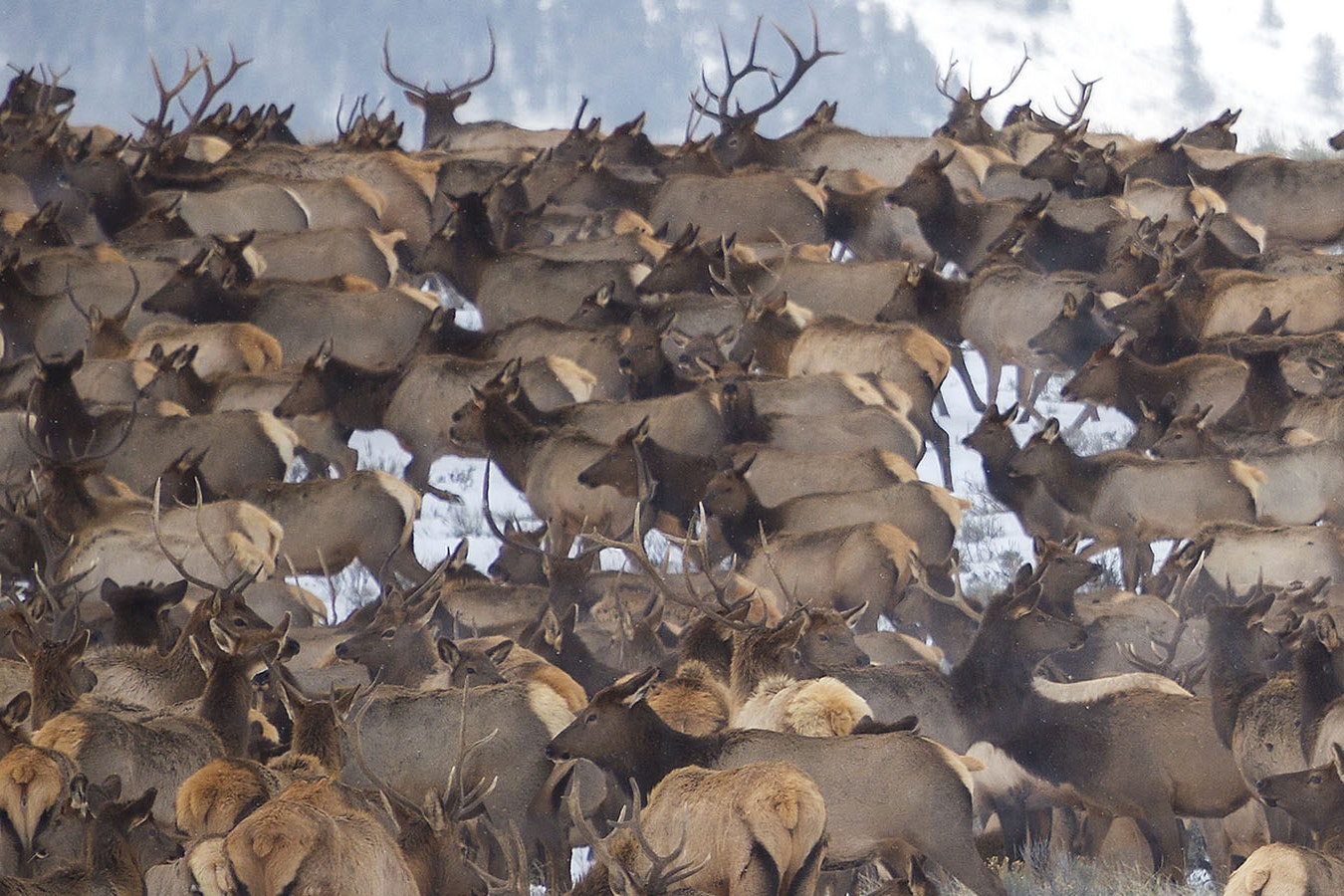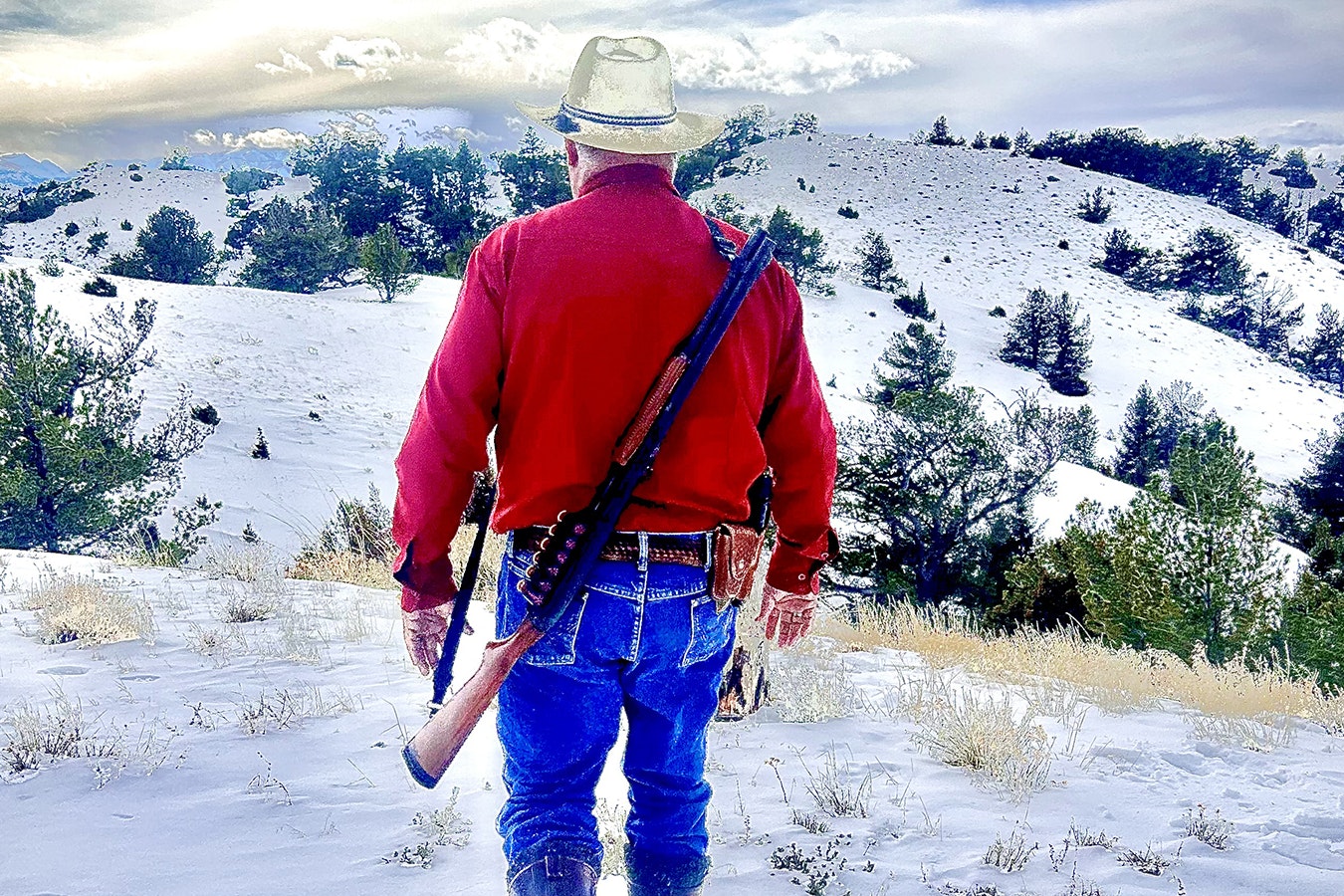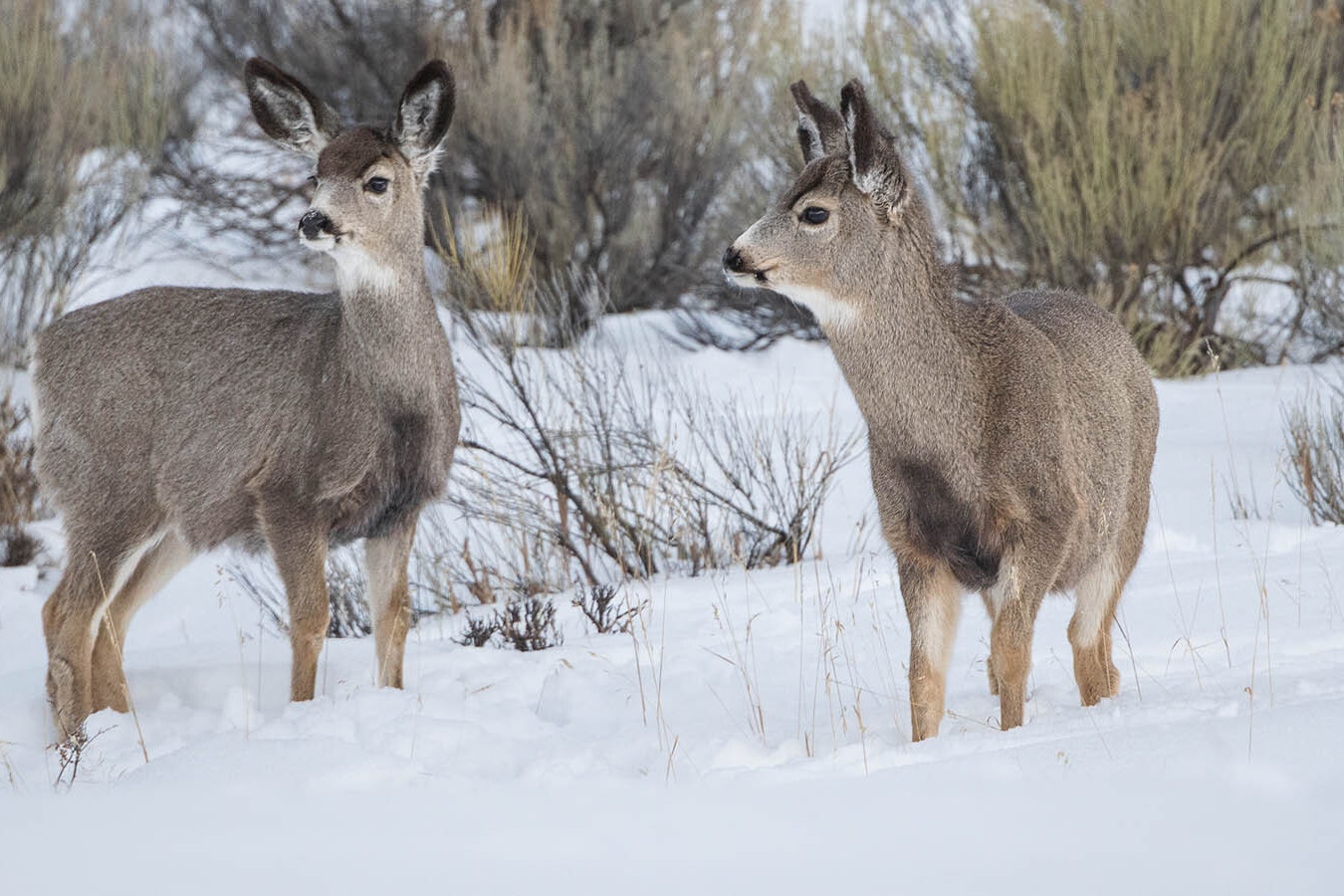Wolves that cross the border from Colorado into Wyoming may be shot on sight, and it’s up to the U.S. Forest Service to stop it, an environmental group claims.
The Center For Biological Diversity plans to file a lawsuit against the Forest Service in U.S. District Court unless the agency steps up to protect the wolves. That’s what the group claims in a letter sent to USFS and U.S. Department of Agriculture officials. The Forest Service falls under the USDA’s jurisdiction.
Environmentalists Say USFS Can Call A Cease-Fire
The possible lawsuit may initially seem like a legal dead end, because the Forest Service doesn’t manage wolves.
The Wyoming Game and Fish Department has jurisdiction over wolves in Wyoming, and the Colorado Parks and Wildlife Department is primarily in charge of the growing wolf population in that state.
But the Forest Service does have authority to shut down wolf hunting in its jurisdiction – and indeed already has shut down prairie dog shooting in parts of Wyoming, the Center for Biological Diversity claims in its letter.
In the case of wolves, the group argues that the Forest Service should declare a no-kill zone on the Medicine Bow-Routt National Forest, headquartered in Laramie.
Center for Biological Diversity attorney Collette Adkins told Cowboy State Daily on Thursday that she couldn’t discuss the pending case in detail. However, she affirmed the group’s stance on the Forest Service having authority to stop hunting in some instances.
“That’s not a question at all, and forest supervisors do that regularly for various reasons, including for protecting an endangered species,” she said.
Colorado’s Fledgling Wolf Population To Grow
There’s been at least one probable instance of wolves from Colorado being killed after venturing into Wyoming.
In October 2022, three black sub-adult female wolves were legally killed in Wyoming near the Colorado border. It was thought they came from the North Park wolf pack, which is Colorado’s only established wolf pack so far.
There could be other such instances going forward, as Colorado’s wolf population is expected to grow – and soon.
The North Park pack was established by wolves that migrated on their own from the Greater Yellowstone area of Wyoming into Colorado. Wolves were reintroduced into Yellowstone National Park in the mid-1990s and have since grown to establish packs in Wyoming, Montana and Idaho.
Colorado plans to reintroduce more wolves by the end of this year, according to Proposition 114, which barely squeaked by Colorado voters. It passed Nov. 3, 2020, by a vote of 50.91% to 49.09%.
Safe In Colorado
For the next few years at least, wolves setting paw from Colorado into Wyoming will face completely different jurisdictions – with Wyoming’s being far deadlier for them.
Colorado’s wolves will remain under full protection until a hypothetical “phase 4” of that state’s wolf management program, which is probably several years away, Parks and Wildlife spokesman Joey Livingston recently told Cowboy State Daily. Wolf hunting could possibly be included in phase 4.
During a recent public hearing in Denver, some Coloradans expressed strong opinions both for and against wolves being hunted there.
In The Crosshairs In Wyoming
In Wyoming, there are three tiers of wolf management.
• Inside Yellowstone Park, they remain under full federal protection.
• In some areas adjacent to the park, Game and Fish has established a “trophy hunting zone” for them. That means wolves may be hunted, but only with a wolf hunting tag during set hunting season and within bag limits.
• In the rest of Wyoming, about 85% of the state (including the border with Colorado), wolves are in the Game and Fish “predator zone.” That means they may be killed on sight at any time with no bag limit.
As For Prairie Dogs, So For Wolves?
Despite not having any wildlife management authority in Wyoming, the Forest Service still has authority to ban the killing of wolves on the Medicine Bow-Routt National Forest, thus giving them at least some degree of protection, the Center for Biological Diversity claims.
The agency has been negligent in that regard, the group says.
“The U.S. Forest Service has not issued any orders to close wolf hunting or trapping or otherwise protect wolves on the Medicine Bow-Routt National Forest,” the group’s letter states. “Nor does the Land and Resource Management Plan for the Medicine Bow-Routt National Forest have any standards or guidelines aimed at conserving wolves.
“In fact, the Forest Plan, developed in 2003, includes no mention of wolves at all.”
The Forest Service has shut down prairie dog shooting and should be able to do the same for wolves, the Center for Biological Diversity argues.
“As just one example of the Forest Service’s use of this authority to prohibit hunting, the Forest Supervisor has ordered a seasonal closure of prairie dog hunting on Thunder Basin National Grassland,” the letter states. “The Forest Service’s authority to restrict hunting on national forests has been repeatedly confirmed in the courts.”
Forest Service spokesman Aaron Voos recently told Cowboy State Daily that the agency implements seasonal closures of prairie dog shooting in some parts of the national grassland.
However, that’s not to protect the burrowing critters from being shot. Rather, it’s to protect raptors and other wildlife that feast on perforated prairie dog carcasses from getting lead poisoning from bullet fragments.
Agencies Respond
Voos and Wyoming Game and Fish spokeswoman Breanna Ball told Cowboy State Daily on Thursday that they couldn’t comment specifically on the Center for Biological Diversity’s threatened lawsuit because it’s a pending legal matter.
“Broadly, the U.S. Forest Service role is to manage habitat,” Voos said. “We work in coordination with the states and USFWS (U.S. Fish and Wildlife Service) as they manage wolf populations, addressing potential issues, such as impacts on grazing.”
Ball said Game and Fish has a “longstanding working relationship with the Forest Service.”
“The Forest Service is tasked with managing habitat, while Wyoming Game and Fish is tasked with managing all wildlife, regardless of land status, public or private,” she added. “This has worked well for many decades.
“It is important to note that Game and Fish has a proven track record of successfully managing a fully recovered gray wolf. Over the last 20 years, Wyoming has maintained wolf numbers at healthy levels that exceed all federal delisting requirements.”

